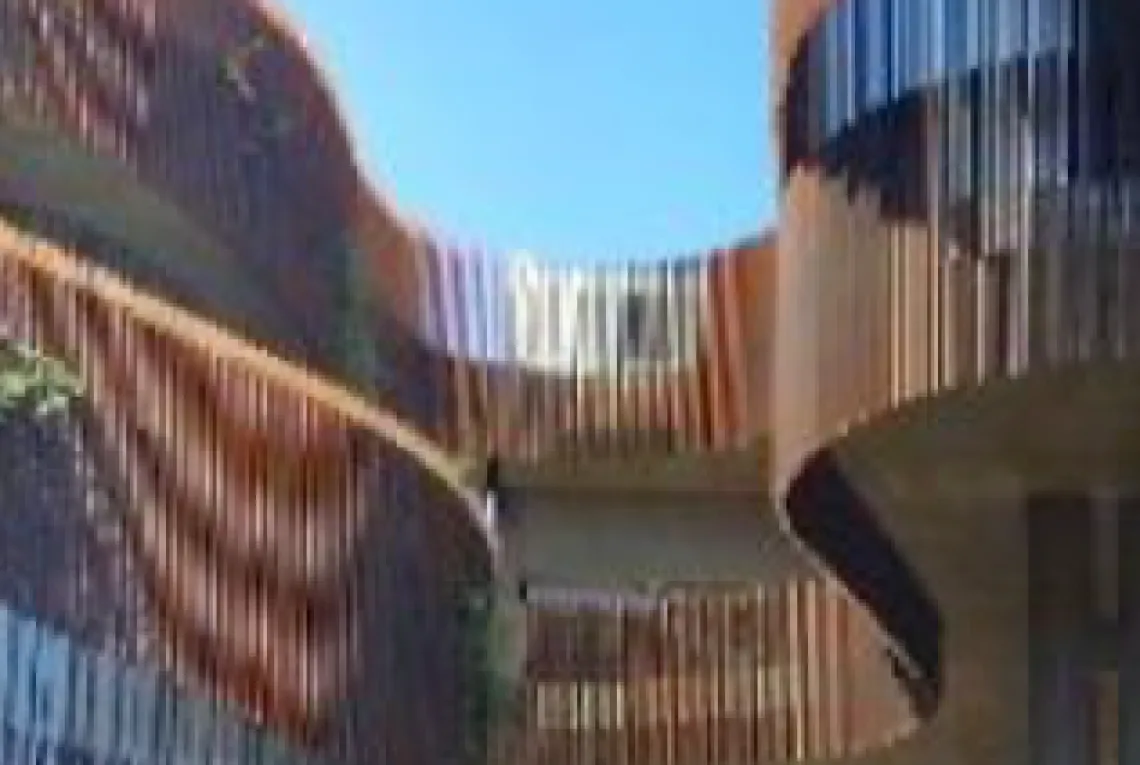Bridging Biodiversity & Conservation Science

Call for Applications | Postdoctoral Research Associates
University of Arizona | Tucson
Review of applications begins June 2, 2017; announcement open until all positions filled.
Open to all qualified U.S. citizens and non-U.S. citizens
An initiative of UA Research, Discovery & Innovation in collaboration with the Institute of the Environment and the Udall Center for Studies in Public Policy
>> Connect with a creative research team spread across the University of Arizona campus, comprising leading researchers from biodiversity science, public health and epidemiology, public policy and governance, informatics, and environmental and national security.
>> Engage in a collective approach to learning and training ... share common postdoctoral research and office space in the UA's new ENR2 Building ... join in lab activities and meetings for at least two faculty PIs (from different disciplines) ... attend regular BBCS-sponsored lectures, training sessions, and workshops.
>> Cultivate and develop, under the guidance of internationally renowned faculty mentors, innovative and interdisciplinary research with potential high-impact funding ($2M to $5M) to address fundamental and applied questions related to changes in local, regional, and global biodiversity.
Join Us!
The University of Arizona Office of Research, Discovery and Innovation, in collaboration with the Institute of the Environment and the Udall Center for Studies in Public Policy, invites applications for 3-4 two-year research appointments in the recently established postdoctoral cluster hire, Bridging Biodiversity and Conservation Science (BBCS): Forecasting Future Operating Environments.
The program seeks researchers who have (i) an ability to collaborate with interdisciplinary teams and create novel synthetic research, and (ii) creative insight in biodiversity and conservation science and expertise or interest in an additional targeted research area, specifically public health, epidemiology and emerging diseases; public policy, public administration, and governance; national security; or informatics.
About the BBCS
The BBCS comprises a team of core faculty, steering committee members, and other affiliated researchers that identified (through a series of workshops in 2016) several cross-cutting research projects that use biodiversity as a focal point for interdisciplinary investigation in public health, governance, informatics, and security. (See BBCS background document.)
The scientific goal of the BBCS program is to build a more robust and predictive biodiversity and conservation science and to addresses emerging, critical issues in human health and well-being, and in environmental, food, and national security.
What You Will Do as a BBCS Postdoc
As a BBCS postdoctoral research associate you will contribute to the development of: (i) synthesis papers, (ii) pilot (“proof of concept”) data, and (iii) at least one of several planned major research proposals ($2-5M) that connect biodiversity science with public health, governance, informatics, and security to be submitted during FY2018 or FY2019.
You will be supervised collectively by the BBCS program manager and by at least two proposal PIs (UA faculty members) from different disciplines (i.e., Liz Baldwin, public policy & governance; Brian Enquist, biodiversity science; Kacey Ernst, public health & epidemiology; Laura López-Hoffman, ecosystem services & public policy; or other BBCS members as appropriate) who will lead the proposal development with significant contributions from the postdoctoral researchers.
You will be situated in offices of the UA Institute of the Environment (ENR2 Building) and will spend time in the labs or in lab meetings of the respective faculty PIs, and participate in regular meetings and training sessions of the broader BBCS team.
Other members of the BBCS team include: Greg Barron-Gafford, geography & environmental studies; Dave Breshears, ecohydrology & macrosystems ecology, Kirk Emerson, public policy & governance; Dan Ferguson, climate change, environmental studies, Indigenous nations policy; George Frisvold, agricultural economics; Gary Nabhan, ethnobotany & food security; Kristen Pogreba-Brown, public health & epidemiology; Stephanie Carroll Rainie, public health & Indigenous nations data sovereignty; and Christopher Scott, geography, public policy, & food-energy-water security.
About the University of Arizona
With more than $606 million in research and development dollars from federal, state, and private sources, The University of Arizona currently ranks #21 among public universities in the US in overall research expenditures and #2 in physical science research. With world class faculty in fields as diverse as astronomy and space exploration, plant science, biomedical science and biotechnology, anthropology, Native peoples, business, law, philosophy, music, and dance, the UA is one of only 62 members in the Association of American Universities. The University’s main campus is situated in the heart of Tucson. Surrounded by mountains and the high Sonoran Desert, Tucson boasts a distinctive southwestern feel and enjoys more than 300 days of sunshine each year.
The UA today has over 43,000 students, and nearly 15,600 employees. The main campus has grown from its original 40 acres to more than 350 acres, and boasts the oldest continually maintained green space in Arizona. The University of Arizona offers a broad range of educational programs and support services that attract an excellent and diverse student body.
Great Benefits
Outstanding UA benefits include health, dental, vision, and life insurance; paid vacation, sick leave, and holidays; UA/ASU/NAU tuition reduction for the employee and qualified family members; access to UA recreation and cultural activities; and more!
To Apply
Applications must be submitted online at:
https://uacareers.com/postings/17422
Review of applications begins June 2, 2017; announcement open until all positions filled.
Open to all qualified U.S. citizens and non-U.S. citizens.
For more information, contact Robert Merideth, BBCS Program Manager.

